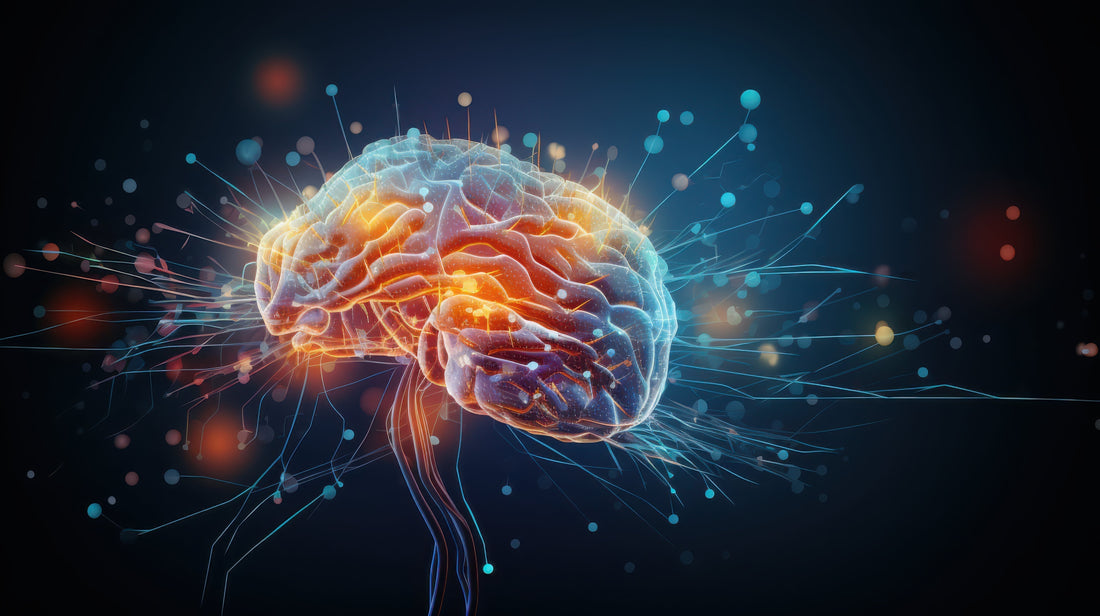Can We Change Our Brains? All About Neuroplasticity


The Brain Is Not Fixed
Your brain grows rapidly in the first five years of life, responding to various physical, social, and environmental factors that influence its development, including brain structure and function. Early life experiences and exposures can even shape your future health outcomes. For example, your childhood experiences shape your learning, skill development, and cognitive processing. This means that what happens in your early years doesn’t just shape your personality; it also sets the stage for how your brain and body respond later in life.
However, it is a myth that your brain stops developing after adolescence. In reality, your brain keeps evolving for your entire life. Every new experience, challenge, or habit helps it grow more adaptable, or “neuroplastic.” Neuroplasticity is the brain’s ability to rewire, adapt, and grow in response to your environment. Not only is this important for general wellness, but plasticity also has implications for mental health, learning, aging, and recovery from injury. Without the ability to respond to change, your brain would not be able to reorganize itself to adapt and compensate for changes. In a sense, your brain is like a whiteboard—it’s easy to write something new, but just as easy to erase and rewrite.
What Is Neuroplasticity?
If you can remember life before cell phones, you probably did not use your thumb in the same way as you do now to send a text. Additionally, if you ever became sick from eating a certain food, you may develop an aversion to that food. These are great examples of how the brain adapts to a specific context. Neuroplasticity is the brain’s ability to reorganize itself by forming new neural connections in response to experiences.
There are two types of neuroplasticity: structural and functional. Structural neuroplasticity means the brain is physically changing and growing new connections or even thickening in some areas, like muscle does with strength training. An example of this can be seen in musicians with dense auditory cortices. Additionally, people who practice meditation have been found to have increased cortical thickness. Functional neuroplasticity is the ability to shift between tasks to different brain areas. This is commonly observed in individuals who have experienced a stroke or traumatic brain injury (TBI). Thanks to these built-in adaptations, your brain doesn’t stop developing once you’re grown up—it keeps learning and changing.
What the Latest Research Is Saying
Although neuroplasticity is considered experience-dependent, there is some evidence that it is triggered by nutrition and lifestyle factors. For example, your diet, sleeping habits, and exercise routines are linked to how well your brain responds to change. To better understand how best to support brain health, neuroplasticity research is rapidly expanding in various areas of study.
Physical activity boosts neuronal survival through increased Brain-Derived Neurotrophic Factor (BDNF). BDNF is important for neuronal activity and synaptic plasticity. Recent studies have shown that moderate aerobic exercise increases hippocampal volume and memory performance in young adults and individuals with neurodegenerative diseases.
Sleep helps your brain sort, store, and strengthen your memories. A recent study found that REM sleep is critical for consolidating new skills and forming flexible cognition. However, daytime naps may also help the brain consolidate and process emotional memories.
Psychedelic compounds (like psilocybin) support neuroplasticity in the brain. A preclinical study found that mice exposed to psilocybin had increased levels of neuroplasticity, which was evident in the number of dendritic branches and density formed during exposure. Additionally, the brain built new connections (synaptogenesis), grew new neurons (neurogenesis), and activated BDNF pathways. In human studies, psilocybin administration had neuroplastic effects and caused positive changes to normal thought patterns.
Cognitive training studies show gains in working memory and executive function with targeted brain training platforms. One meta-analysis found that memory-oriented cognitive training improved working memory. Additionally, combining cognitive training may improve outcomes.
How to Support Neuroplasticity Naturally
1. Mental Stimulation
- Learn a new language, instrument, or complex task.
- Try dual-tasking exercises (e.g., memory + movement).
2. Physical Activity
- Regular aerobic exercise (brisk walking, cycling) increases BDNF and cerebral blood flow.
3. Mindfulness & Meditation
- Enhances the prefrontal cortex and hippocampus structure.
- Reduces stress-related neurotoxicity.
4. Prioritize Deep Sleep
- Memory consolidation and synaptic pruning occur during sleep cycles.
- To promote better sleep hygiene, follow a consistent sleep schedule, ensure your room is dark and free of distractions, and avoid blue light before bedtime.
5. Positive Social Interaction
- Enhances dopamine and oxytocin, critical for emotional learning and neural growth.
6. Nutrition for Brain Support
- Malnutrition is considered a factor in secondary brain injury. A diet rich in omega-3 fatty acids, amino acids, vitamins, minerals, prebiotics, and probiotics supports the brain and may help the brain recover after a TBI.
Supplements That Support Neuroplasticity
A solid routine (i.e., good sleep, regular exercise, and diet) goes a long way for your brain, but certain compounds may also provide support and are worth exploring with your healthcare provider.
Pregnenolone
Pregnenolone is a neurosteroid that may play a role in memory, mood, and how easily your brain adapts. Neurosteroids are known to have anti-inflammatory, neuroprotective, and neurotrophic effects, which means they can support functional and structural changes in the brain. Additionally, pregnenolone may help brain cells grow and communicate better.
Alpha-GPC
Alpha-GPC is a special type of choline, an essential nutrient for brain health, that may help with memory and focus. It is a precursor to the neurotransmitter acetylcholine and may help boost its levels in the brain. Some studies suggest alpha-GPC may help with focus and memory, whether you’re trying to stay sharp or support healthy aging. Additional studies have shown that alpha-GPC may improve motivation.
Bacopa Monnieri
Bacopa monnieri has been used for centuries in Ayurvedic medicine to support memory and mental clarity, and research today is beginning to back that up. It may help with focus, memory, and learning, and some research shows it can calm the brain when it’s overstimulated. This suggests Bacopa monnieri may act as an adaptogen to reduce cognitive stress.
Magnesium L-Threonate
Magnesium L-Threonate (branded Magtein®) is a special form of magnesium that’s designed to reach your brain more easily, indicating its ability to cross the blood-brain barrier. Recent studies have found that Magtein® supplementation supports memory formation and retention, synaptic plasticity, and deep sleep.
Final Thoughts: You Can Reshape Your Brain
Neuroplasticity is a lifelong capacity, not a fixed trait. With the right environmental inputs, lifestyle habits, and supportive compounds, brain transformation is within reach. In other words, you can teach an “old dog new tricks” if the brain is supported and continually challenged to adapt to change.
Before beginning any diet, lifestyle, or supplement routines, talk to your healthcare practitioner to learn what’s best for you.


